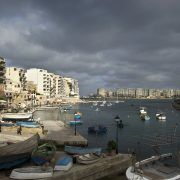PR 10/19 | Planning Authority decision is “unfair, irregular and against the principles of natural justice”
The Commissioner for Environment and Planning within the Office of the Ombudsman has found the Planning Authority’s decision to require holders of CTB concessions to sanction or regularise their property to be “unfair, irregular and against the principles of natural justice”.
The Eighth Schedule regarding Category B concessions, referred to as CTB in short, came into force in August 2012. Residential property owners were able to submit an application to the Malta Environment and Planning Authority to cover illegal development that fell within specific strict parameters. If approved, the applicant would then be allowed to request permission for alterations and additions to the property, and a Compliance Certificate for the provision of new water and electrical services to the dwelling could be issued.
PA Circular 4/12 points out that CTBs do not have an expiry date. The CTB regulations had the effect of restoring the affected properties’ market value to levels comparable to legal properties of a similar description. As a result, these properties became sellable again, and banks were reassured that the effects of the concession were permanent.
With the coming into force of the Development Planning Act in 2016, the CTB regulations were repealed and no further applications could be submitted. In August 2016, new regulations were published that allowed for the regularisation of various types of illegalities, with no specific parameters, as long as these were not deemed to be an “injury to amenity”.
On the 28th January 2019, the Planning Authority published a Circular titled “Category B Concession (CTB) Explained”. The Circular concludes that when an application for development permission is submitted on a site which is covered by a CTB concession, then the irregularity “needs to either be sanctioned or removed, prior to any processing of the application. If the illegal development cannot be sanctioned, a regularisation application would need to have been submitted and approved prior to the planning application being confirmed as complete.”
The Kamra tal-Periti requested the Ombudsman’s office to investigate this matter in March 2019, outlining its opinion that holders of CTB concessions for minor irregularities were facing serious risks on their investment unless the Planning Authority changed its interpretation of the law. Banks that have taken such properties as security against mortgages are also at risk in case of default, as the value of such properties may be much lower than expected as a result.
In a decision delivered on the 7th May 2019, the Ombudsman’s Office concluded that the above quoted paragraph from the Authority’s Circular “is found to be unfair, irregular and against the principles of natural justice” and ordered the Planning Authority to “withdraw and cancel this part of the Circular to the effect that a new application can be submitted on a site covered by a CTB concession without the need for sanctioning, regularising or removing the illegal works covered by the same CTB concession, as long as no further illegal development has taken place on site.”
The Council of the Kamra tal-Periti does not condone illegal development in any way, however once certain rights were granted to property owners in the past these cannot be taken away at a later date, more so when the legal ramifications are wide ranging and potentially serious.











